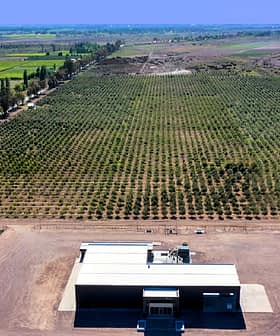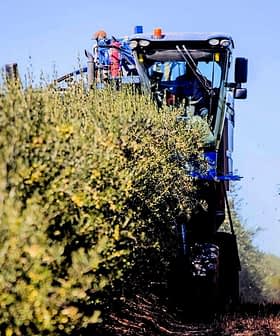Emergency Taxes in Argentina Putting Pressure on Producers
The tax has been forcing olive oil producers to sell down their stocks as quickly as possible and dampening the optimism that had previously been palpable in the sector.
Argentina’s new tax on agricultural exports, which was instated last September, has been weighing heavily on the country’s olive oil producers.
We are in a situation of bankruptcy and the tax does not help, but worsens it.
Mauricio Macri, the Argentine president, imposed the taxes in order to increase government revenue and help to keep rampant inflation in check.
“We know that it is a really bad tax that goes against what we want to stimulate, which is more exports,” Macri said at the time in a televised speech. “But I ask you to understand: it’s an emergency and we need your support.”
See Also:Olive Oil BusinessHowever, the weight of providing this support has olive oil and table olive producers staggering toward an uncertain future.
Olive oil producers have been paying an additional three Argentine pesos ($0.08) in tax on every U.S. dollar of revenue they earn from exports. For table olives, producers pay four pesos ($0.11) for every U.S. dollar earned.
While it may sound small, these pesos add up and have been forcing many producers to sell through their stocks as quickly as possible. Sometimes this is still not enough.
Julián Clusellas, the president of the San Juan-based Rio de la Puerta olive oil company, told Olive Oil Times that his company could face bankruptcy soon if something does not change.
“We are in a situation of bankruptcy and the tax does not help, but worsens it,” he said. “The producers are not able to feel out the pulse of the market and we must sell all our production and as fast as possible to stay alive.”
Frankie Gobbee, the co-founder of the Argentina Olive Group, echoed similar sentiments. He told Olive Oil Times that Latin America’s largest olive oil producing company was also in financial danger as a result of the new taxes.
Both Clusellas and Gobbee acknowledged the need for the Argentine government to do something in order to combat rampant inflation, which has seen the value of the peso halved in the past year. However, they worry that their industries will be collateral damage in the effort to stabilize the currency.
On top of the new taxes, increased energy, fuel and equipment costs have already been eating away at many producers’ bottom lines as they push up production costs.
“The taxes, [which are] called retentions are important, given that once again we have a delayed exchange rate in relation to internal costs,” Gobbee said. “It is common knowledge that a large part of the inputs are dollarized agrochemicals and energy and fuels. Labor costs are the only expense in pesos while the rest has risen around 50 percent.”
The Economic Research Institute of the Buenos Aires Grain Exchange, which has analyzed the potential impacts of the taxes for the current harvest season as well as the upcoming one, said the increased export duties are likely to hurt agricultural producers of all types.
“The measure will have negative impacts on the planted area, investment per hectare, production, milling and exports,” the group said in a statement.
Argentina’s Ministry of Agroindustries has remained silent on the issue and have not released a formal statement regarding the tax increases. The Ministry did not respond to a request for comment on this story either.
However, the Buenos Aires Grain Exchange said that these new taxes will continue to hurt producers as well as the overall economy while they are in force.
“The sum of the campaigns would register a decrease of $2.762 million in the Gross Agroindustrial Product, with respect to what would be achieved with the previous estimates,” the group said. “The Argentine economy would regress by 0.2 percent and 0.4 percent growth, according to these estimates, in 2019 and 2020.”
The exchange has urged the government to reconsider these taxes, stating that the government should be working on a solution that would help increase exports as well as address inflation.
“As a result, and despite the urgency implied by the imbalances of public finances, it is important to move towards a more efficient tax system that promotes investment and exports, the engines of a sustainable economic growth process,” the group said.
Until this emergency tax is removed and the value of the peso rebounds, producers such as Clusellas and Gobbee will continue selling down their stocks and hope for a windfall from the upcoming harvest, which is estimated to be record-setting.






